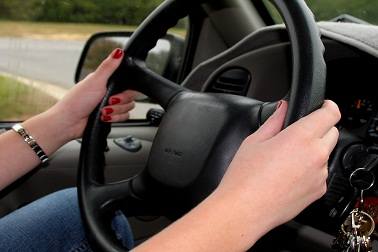
By Greg Hanscom
Kids these days — they don''t like cars. What''s up with that?
A new survey by the car-sharing company Zipcar finds that Millennials just don''t see cars as the ticket to freedom that their parents did. According to the survey, 55 percent of Millennial s have actively made an effort to drive less, while 78 percent say that the high costs of gas and maintenance make owning a car difficult. That''s good news for Zipcar: The company says that Millennials make up more than half of its members.
But here''s a little secret about Zipcar: It''s just cool enough to make you realize that you can live without your own vehicle, and just inconvenient enough to keep you from using it very much. A study earlier this year found that Zipcar users were more apt to use public transportation — or just bike or walk — than they did when they owned their own car.
Double awesome, right? Well, yeah, unless you really need to get someplace in a hurry.
Enter peer-to-peer car sharing, which promises to spread the concept of the communal auto far and wide. What is it, you ask? Here''s a somewhat roundabout answer:
Waaaaay back in the late ''90s, my wife and I bought a century-old house in a small town in Colorado. We were so starry-eyed about the place (we''ll remodel the kitchen the first weekend, the bathroom the second … ) that we failed to notice that it was sinking into the swamp. Literally. It took us seven years to bang the place into shape, starting with the foundation and working our way up through the wiring, plumbing, and, eventually, the kitchen and bathroom.
During that time, we hauled a tremendous amount of junk out of that house — and brought in just as much new material. We needed a truck, but only during the few days a week we were working on the place. So we pooled our money with a handful of friends and bought a 1968 Ford half-ton pickup truck with a silver racing stripe up the hood. We called it Big Blue.
The rules were simple: You could use Big Blue any time you liked (we left the keys in the ashtray), you just had to empty the bed and fill the tank when you were done. We shared the cost of insurance and upkeep. It wasn''t a perfect system, but we got a lot of use out of that truck, and when our various home improvement projects were done, we sold it. No doubt it''s still rumbling around the high desert somewhere. (We had a similar system with a television and a VCR, which had the Zipcar Effect on our TV-watching habits: We usually found other ways to entertain ourselves.)
Peer-to-peer car share works kind of the same way, only they''ve improved the technology a bit since our key-in-the-ashtray days. You use a kit to install a card-swiper on your car, allowing car share members to use it when you''re not. You set the hourly price, somebody gets the use of your car for the afternoon, and you make a little money on the thing, which otherwise sits around 90 percent of the time, draining $8,000 from your wallet each year, according to the American Automobile Association.
Peer-to-peer car sharing has been pioneered on a small scale by companies such as Getaround, RelayRides, and Spride Share. This month, Getaround landed a $1.7 million grant from the Federal Highway Administration to launch a major effort in Portland, Ore., so we''ll have a chance to see how it works in a bigger venue — albeit one that is predisposed to this kind of mad, hippie, share-tastic enterprise.
"Collaborative consumption" comes with its risks, of course, as in the case of the woman in San Francisco who rented out her flat via the web service Airbnb and returned to find it trashed. But states like Oregon are tweaking insurance laws to allow for coverage of these programs, so in theory, if someone drives your car into a ditch, you''re covered — though you may have no choice but to ride the bus for a few weeks while it gets fixed.
But there you go again with the unintended consequences — and heck, if it pries us out of the car, even for a day, I''m all for it.
Courtesy of: http://www.grist.org

